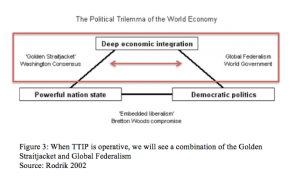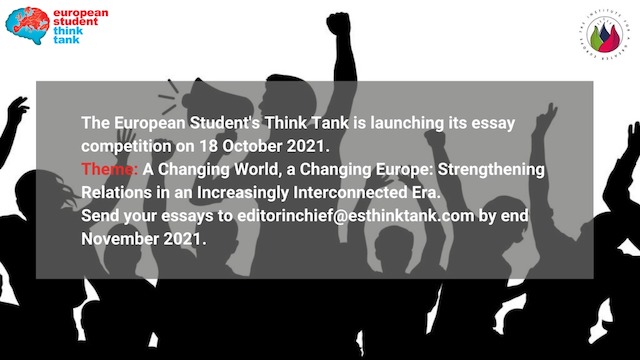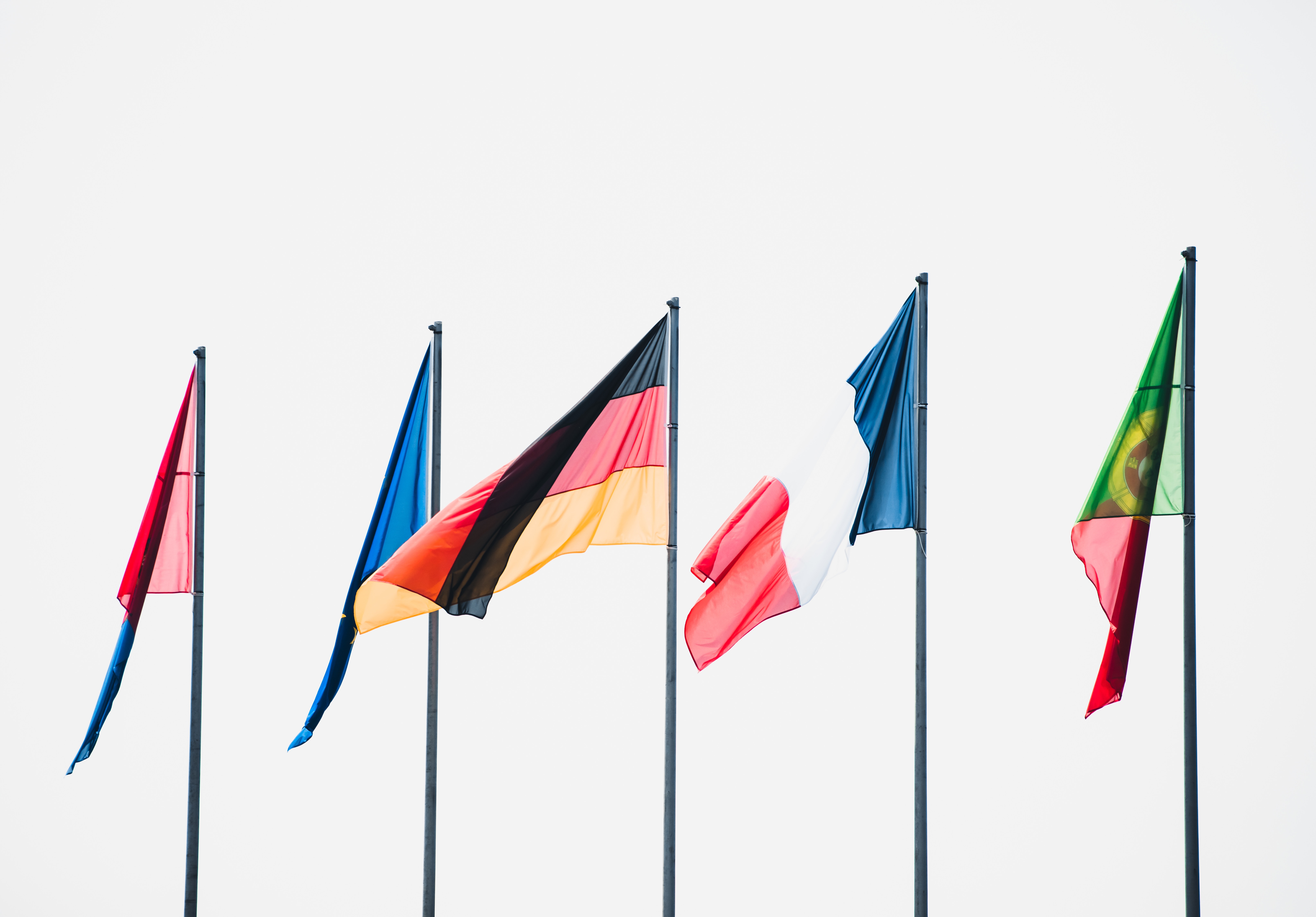
By Maurijn Rezvani, student of Anthropology and Political Science at the University of Amsterdam and writer for the European Student Think Tank.
The number of signed trade agreements is growing exponentially. Since the nineties this number has grown eightfold (see figure 1). The Transatlantic Trade Investment Partnership between Europe and the United States is the mother of all treaties since its ambition is to combine the two largest economies in the world, which together make up half of the world’s Gross Domestic Product. Trade agreements generally seek to remove all regulatory differences between the signatories, and often include a chapter to protect investments. To put it differently, trade agreements bring about deep economic integration (Birdsall & Lawrence 1999: 128). Dani Rodrik (2002) has argued, that this has to be at expense of either the nation’s sovereignty or democratic governance. Many scholars however, have argued that the TTIP is at the expense of state-sovereignty as well as democratic governance (Stiglitz 2013; Crouch 2014; Engelen 2015).
How does the TTIP fit in relation to the choices that, according to Rodrik, European nation-states have in the contemporary political economic world? In this essay I will explore how we can make sense of the agreement in relation to Rodrik’s model of the world economy. In order to do so, I will look at the objectives to enter the Transatlantic Trade and Investment Partnership, as well as the objectives not to do so. I will look at the discursive context in which nation states manoeuvre themselves in relation to Rodrik’s model, as well as how they relate to a bigger trend that the political scientist Colin Crouch calls post-democracy.
Figure 1: Evolution of Regional Trade Agreements in the world, 1948-2014
Source: World Trade Organization
TTIP: Two sides of the coin
TTIP stands for Transatlantic Trade and Investment Partnership, and as the name already suggests, the TTIP aims to combine the economies on both sides of the Atlantic, the European Union and the United States. It seeks to remove all regulatory differences between the two regions, and to set up a special tribunal to protect corporate investments. The TTIP was announced for the first time in 2013, and is still in negotiation. While enthusiasts see the agreement as a vehicle for economic growth, opponents argue that it undermines democracy and represents a shift in power from governments towards businesses.
The TTIP is in line with the liberal economic policies that we have seen the last two decades. Economic liberalism tends to oppose government intervention in the free market. It is a strategy that Dani Rodrik characterizes as ‘driven by an aggressive agenda of “deep” integration – elimination of all barriers to trade and capital flows wherever those barriers may be found’ (Rodrik 2002: 2). According to Rodrik, the results are problematic since deep economic integration cannot be attainable in a context in which nation states and democratic politics still exert considerable force (Ibid: 2). He calls this the political trilemma of the world economy: a country cannot have democracy, deep economic integration and strong sovereignty simultaneously, but can only pick two at most (see figure 2). If the EU and the US would come to a Trade Agreement and Investment Partnership this would mean much deeper economic integration. I will shed light on the both sides to make sense of the objectives to enter the agreement. First, I will look at the objectives to enter such an agreement and critically examine the suggested growth. Then, I will shed light on the reasons not to enter an agreement. This section is divided in two sections according to Rodrik’s trilemma in the world economy.
Figure 2: Rodrik’s Trilemma of the world economy.
Source: Rodrik 2002
Economic benefits
Trade agreements are in line with pursuing liberalization and deep economic integration. In the eighteenth century Adam Smith published The Wealth of Nations (1776). Its influence can still be traced in today’s world economy; the book is often referred to as the foundation for free trade as the vehicle for improvement of overall economic welfare. Free markets, which are free from governmental influence, are ever since generally believed to be the most effective as well as the most democratic mode of economic organisation that has yet been developed by experts in the field (Dorfman in Stilwell 2002: 150). It is therefore not surprisingly, that we have seen a political discourse that is in line with these assumptions.
TTIP is designed on these ideological foundations. John Whally has identified this in more general terms as one of the reasons to enter any trade agreement:
‘[p]erhaps the most conventional objective thought to underlie a country’s participation in any trade negotiation is the idea that through reciprocal exchanges of concessions on trade barriers there will be improvements in market access from which all parties to the negotiation will benefit’ (Whally 1998: 71).
In the speeches in favour of the agreement, we can easily identify this objective as Euro commissioner Karel de Gucht notes: ‘It will create a tremendous impact on jobs and growth on both sides of the Atlantic’ (De Gucht in De Ville 2013: 13).
According to the European commission, the TTIP will result in more business opportunities, more growth, more jobs and lower prices. The European Commission concludes this on the basis of a study that has been carried out by an independent research council. The economists have argued that the TTIP ‘could bring significant economic gains as a whole for the EU (€119 billion a year) and US (€95 billion a year). This translates to an extra €545 in disposable income each year for a family of 4 in the EU, on average, and €655 per family in the US’ (CEPR 2013: vii). Based on these findings, the European Commission states that the TTIP would bring a welcome boost to trade at a time of continuing economic crisis.
Many scholars however, have called the suggested growth into question. First of all, some economists have calculated that the abovementioned growth is the equivalent of a cup of coffee per person per week (Myant and O’Brien 2015). Another study that was commissioned by the European Parliament, concluded that the estimated gains are very small and only exist on the long-term with a transition period of 10 to 20 years (Raza et al. 2014: 5). And yet another study claims that it will even lead to job losses and losses in terms of GDP (Capaldo 2014). Even the German minister for economic affairs Sigmar Gabriel has expressed his doubts: ‘I don’t believe in the wondrous calculations for economic growth from the trade deal TTIP’ (Reuters 2015). Economists clearly do not seem to agree on this point, since different economic models result in different outcomes. But it is not only a matter of economic benefits or disadvantages. Many scholars warn that the TTIP poses a threat to public policy goals like consumer safety, public health and environmental safety (Raza et al. 2014: 5).
This brings us to social costs of the ambitious trade partnership between the EU and the US. The critique on this side of the debate consists of two main arguments. The first one has to do with the national public policy goals of European nation-states. The second argument is about the threat that TTIP poses to democracy. I will divide this next part therefore into two sections: the decline of state sovereignty and the decline of democracy. To put it differently and in terms of Rodrik’s trilemma: TTIP represents a shift towards Global Federalism as well as the Golden Straitjacket (see figure 3). In the following sections, I will respectively explain why the TTIP represents a shift towards the Golden Straitjacket and Global Federalism, and therefore undermines the sovereignty of the nation-state as well as democratic governance.
Social costs
- The Golden Straitjacket
The idea of countries being caught up in the ‘Golden Straitjacket’ comes from the famous economist Thomas Friedman. What he meant by this was that once a country recognizes the rules of the free market in today’s global economy, it puts on the Golden Straitjacket (Friedman, 1999: 102). This jacket is stitched together with ‘one size fits all’ policies that take the private sector as the primary engine of economic growth while the size of state bureaucracy and restrictions on foreign investment shrinks (Ibid.: 103). As a result, the economy grows and the politics shrink, with only slight differences in political choice and without radical alternatives for the core golden rules (Ibid.: 103-104).Rodrik argues therefore that the Golden Straitjacket downplays democracy. He argues that ‘the crowding out of democratic politics gets reflected in (…) the replacement of developmental goals with the need to maintain market confidence’ (Rodrik 2002: 5). With the opportunity of a TTIP between the EU and the US we can see such a shift happening, with politics being exercised over a much more narrow domain. TTIP undermines democracy for two reasons. The first one is that certain democratically established social standards will probably be swept away, if the EU and US harmonize certain standards. The second reason concerns the power shift from governments towards businesses, which undermines the voices of the public. In what follows I will argue why the TTIP is undermining democracy or is causing a ‘democraticide’ as Ewald Engelen (2015) has called it.Generally speaking, the EU has adopted higher standards than the US. When TTIP’s goal is to remove all differences, either the regulations in the EU have to be loosened or the ones in the US have to tighten. However, as many scholars have argued, it is unlikely that the US will raise theirs, even though many Americans hope that a TTIP will have such effects (Vom Endt 2014: 102). Democratically established standards, such as the ban on hormone-treated beef, will be overruled by the TTIP’s ambitions. Critics of the agreement therefore argue that this trade agreement will be at the expense of democratic politics. Former chief economist of the World Bank Joseph Stiglitz argues that the trade representatives of corporations on both sides of the Atlantic ‘will almost surely push for the lowest common standard, levelling downward rather than upward’ (Stiglitz 2013). It is a race to the bottom, in which rules and regulations gradually disappear.
The road to the bottom of this race can be seen as the road towards post-democracy. The sociologist and political scientist Colin Crouch (2004) has introduced this concept to describe the current situation of many Western democracies, which has a lot of similarities with Friedman’s Golden Straitjacket. He predicted that the ability of states to apply democratic systems would become more and more problematic (Crouch 2004: 4). I will return to this in more detail. In a more recent article, he described the TTIP as a feature of post-democracy as he meant it in its purest form: ‘an elite of business and governmental persons has been trying to make deals behind the back of the population – potentially undermining a mass of social and environmental policies – and in particular planning to enable tribunals of private corporate lawyers to judge corporations’ complaints against governments’ policies’ (Crouch 2014: 176). This brings us to another element of the TTIP that threatens democratic politics.When the TTIP is operative, an arbitrage tribunal that is part of the agreement will be put in place. This element has caused much controversy and is being heavily criticized. ISDS is its name and stands for the Investor-State Dispute Settlement. It enables corporations to sue nation-states outside of the national court. In the next section I will explain this in more detail. Since there is no form of democratic process involved in this system, it seems needless to emphasize the undemocratic nature of this component. The economic sociologist Wolfgang Streeck has extensively written about democracy being in trouble with contemporary capitalism. He argues that if institutions that concern economics are no longer influenced by elections, as is the case with this tribunal, democracy is endangered (Streeck in Haegens 2013).
This component of the agreement is not only undemocratic, it is also undermining the sovereignty of states, which brings us to the second option in Rodrik’s model of the world economy: Global Federalism (see figure 2). In the following section I will describe in a similar manner why we are heading towards this outcome as well if such a TTIP becomes operative.
- Global Federalism
According to Rodrik, this possible outcome of the world economy is more of a conceptual nature than a practical one (Rodrik 2002: 17). It is nevertheless useful as a theoretical insight to conceptualize the world economy. Nation-states, rather than democratic politics are being sacrificed in this scenario in order to pursue deep economic integration. ‘Under global federalism national governments would not necessarily disappear, but their powers would be severely circumscribed by supranational legislative, executive, and judicial authorities’ (Ibid.: 17).The TTIP brings about such a shift as decision-making moves towards a higher level. Rodrik argues that politics does not have to shrink in this case but that it would be relocated to the global level instead (Ibid.: 16). The ways the US and the EU are both politically organised, are developments in this direction, with supranational bodies to exercise politics rather than decentralized forms of organisation. TTIP takes this to an even higher level by combining the two supranational political bodies. European Nation-states in this sense, give up part of their power to Brussels and when TTIP is operative, to Washington.The ISDS that I have mentioned earlier is undoubtedly the biggest threat to a state’s sovereignty. When corporations have the ability to sue nation-states above national courts it is evident that sovereignty is being overruled. States can be litigated outside the national judiciary system for alleged threats to their property rights or limitations imposed on their investment gains, caused by consumer, health, social economic or environmental protection policies (Knoll et al., 2013: 29).In the Journal of World Trade, Reinhard Quick (2015) has argued that the TTIP between the EU and US should have an investment chapter including ISDS. ‘Not to include ISDS in TTIP would demonstrate that the two economic champions of the world are unable to lead by example’ (Quick, 2015: 199). This argument is invalid in my opinion, for the reason that ‘the two economic champions’ are not particularly ‘leading by example’ for other countries. Consider the following examples that have been a result of other trade agreements.
Uruguay’s president Tabare Vasquez started a campaign against the high percentage of tobacco consumption in his country. Tobacco firm Phillip Morris claimed two billion dollars due to the bilateral trade agreement between Uruguay and Switzerland (Mc Donagh, 2013: 11). Ecuador has to cope with the largest claim in history for the termination of a contract with the American oil company Occidental Petroleum (Ibid.: 11). In their article When the Claim Hits, Poulsen and Aisbett testify that as soon as the first investment claim is being made, the number of signed trade agreements drastically decreases (Poulsen and Aisbett, 2013: 303). This suggests that countries are not aware of the consequences that a trade agreement can have, which is why demonstrators often use the symbolism of a Trojan horse when they protest against trade agreements (see figure 4).
Through the ISDS, social policies can be undermined, from which big corporations can benefit. While governments lose sovereignty, businesses gain power. This power shift is not an exception in the world economy; it represents a larger trend I mentioned earlier, one towards post-democracy. In the following section I will further explain this controversial topic and look into what causes this democratic malaise.
Figure 4: Protesters have made a Trojan horse to symbolise the unexpected negative consequences that TTIP can have. Source: https://www.flickr.com/photos/greensefa/16442672382/
Post democracy; causes and solutions
Because of globalization, politics has become much more complicated. More actors are involved, and decisions influence multiple levels of political life. Democracy can therefore end up in a problematic position. Colin Crouch has argued that we are moving towards such a condition, which he calls post-democracy. In this section, I will first roughly explain the concept of post-democracy and then argue why TTIP brings Western democracies closer to this stage. I will finish this chapter by looking in a broader sense into what causes the democratic decline, and at what can be done against it.
Just like a post-industrial society still uses the achievements of industrialisation, a post-democratic society continues to use all the institutions of a healthy democracy, but in which they increasingly become a formal shell (Crouch 2013). Instead, he argues: ‘politics and governance are increasingly slipping back into the control of privileged elites in the manner characteristic of pre-democratic times’ (Crouch 2004: 6). Formal democratic institutions are fully operating as elections are being held, governments fall and freedom of speech is in power, yet their real application is limited.
As I have mentioned earlier, Crouch sees a TTIP as a step forward on the road towards post-democracy, because businesses largely dominate the negotiations. Among the European stakeholders in stakeholder events, business associations and companies dominate by 87 per cent, while non-governmental organizations, Trade Unions, citizens’ representatives, academics, governmental institutions make up the resuming 13 per cent (Dür and Lechner 2014: 5). The Corporate Europe Observatory (2014) has published that ‘of the 560 lobby encounters that the Commission had – in consultations, stakeholder debates and behind closed doors meetings – 520 (92 per cent) were with business lobbyists’. This indicates the level of corporate power in relation to other groups in order to influence the agreement, while the agreement has big impacts for the general public since it concerns social policies to protect citizens. More generally speaking, there is a major imbalance ‘between the role of corporate interests and those virtually all other groups’ (Crouch 2004: 104). We can therefore argue that ‘privileged elites’ gain power through the agreement at the expense of democratic governance.
What causes and what can reverse or contain this shift? First of all, it is caused by the increasing influence of businesses on politics. The dominant discourse of liberalism has brought about a decreasing influence of governments from providing for the lives of ordinary people and an increasing freedom of the market. This has always gone hand in hand with the growing colonisation of the same state by corporate interests on different levels. These levels include external power, internal changes and even within the very structure of political parties themselves (Ibid.: 104).
This shift towards a more market-based society did not appear from nowhere. Contemporary liberal ideology is based on certain assumptions that support this shift. It sees governments as essentially incompetent and firms as uniquely competent, which causes pressure on governments to give corporations more control over public goods (Ibid.: 109). The global firm has become the key institution of the post-democratic world, as Crouch describes it. If we view this as problematic, Crouch argues that we have to discuss this not only in the context of the ‘desirability’ of capitalism, but also in terms of political measures to regulate lobbying, for example (Ibid.: 109). His most concrete measure for the EU that he already proposed in 2004, is very clear: ‘[the EU] can challenge the US dominance, which will otherwise become totally hegemonic, and therefore eliminate alternatives and possibilities of choice – absolute minima for any democracy’ (Ibid.: 108). This obviously implies the refusal of the far-reaching trade agreement between the two powerful blocs.
Whereas lobbying is largely accepted in the US as a legitimate part of the political process, countries in the European Union are much more sceptical towards the influence of business in political life (EurActiv 2005). When this TTIP is operative, the two will be more intertwined and American businesses gain power in Europe. This is another step towards a post-democracy. The economist Jeffrey Sachs has criticized lobbying for being incompatible with democracy. He describes American politics as a corporatocracy in which ‘powerful corporate interest groups dominate the policy agenda’ (Sachs 2011: 105). Whether Europe will follow suit thus depends on whether the EU steers towards the hegemony of the US as well as their ideology.
Democracy strikes back
Whether the EU will take the neo-liberal direction of the United States, depends on something else. It depends on the critique that the European and American citizens, and academics in particular, have to offer. As I have tried to show, businesses will probably have the biggest influence on the outcomes of the agreement. Results will however, influence ordinary citizens. It depends therefore as David Harvey describes it, on ‘the degree to which the mass of the population rises up’ (Harvey 2011: 12). Not only as we have seen with the recent Occupy or the even more recent Blockupy protests, but also through substantial debates in which these issues can be discussed and voted upon.
Rodrik has taken Argentine as an example to show how, when push comes to shove, democracy can shove the Golden Straitjacket aside. After more trade liberalization and privatization, the country was pursuing an agenda of deep economic integration. As Rodrik’s trilemma has shown, this has to be at the expense of either democratic governance or a strong nation state. It was democratic governance that was put on the side in this case, but after mass protests the political agenda depended on what the Argentinian people were willing to accept (Rodrik 2002: 15-16).
Argentine can lead by example for Europe, as we are witnessing growing controversy. Thousands of people have marched on the streets against the agreement. On the 18th of April of this year, 700 actions have been organised in Europe and thousands concerned citizens have shown their dissatisfaction on the streets (NRC newspaper, 2015). On the 10th of October of this year, another demonstration has been planned in the Netherlands, and other actions are growing in numbers in the rest of Europe as well. A lot of people seem to be concerned about this issue, as events and protests are regularly returning. As I mentioned before, the Trojan horse has become a universal symbol for the TTIP at the protests, as it implies the unexpected negative consequences it can have (see figure 3).
But whether democratic protest can be successful, very much depends in my opinion on the degree to which the public and social scientists have viable solutions and substantial arguments to offer. In his book Inequality: what can be done? (2015), the British economist Anthony Atkinson has proposed that the ISDS should also be open to governments, trade unions, and consumer organizations, to bring cases against corporations. However difficult to defend in a debate that is largely dominated by corporations, it is important to offer alternatives. It is only then, that democracy can play an active role in the process.
As a final factor in the democratic process the media plays a big roll. While controversial and constantly growing, the subject still receives little coverage in the mainstream media (Knüpfer 2014: 34). Whether debates can take place or demonstrations can be held, depends on a well-informed public. Whether the public is well informed, depends on accurate reports in the media.
Conclusion
While the negotiations are already in an advanced stage, the social/public debate has just started. As I have shown, it looks like TTIP is specifically engineered to give companies more power through the dismantling of social, consumer and environmental protection. It is in the interest of European democracy as well as nation-state sovereignty that TTIP will not come into operation. Dani Rodrik has already warned us, that deep economic integration cannot go hand in hand with a strong sovereign nation-state and democratic governance. TTIP will most likely not eliminate one of those, but both. It represents a power shift from governments towards businesses, in which the voice of the people threatens to get lost.
In conclusion, if we want to make sense of the agreement in relation to Rodrik’s model of the world economy we see that TTIP causes as well as strengthens and represents a shift towards two of the three options (see figure 3). It moves towards the Golden Straitjacket because businesses gain power and further dominate the political domain. It also represents a shift towards Global Federalism because decisions will be taken to a higher level and corporations can sue sovereign nation-states above national court.
Once we recognize this trend, towards a ‘post-democracy’ or something else, we can work on solutions. In this essay I was able to address some controversial issues that further need to be discussed. In this context it is of great importance that further research is conducted. The social costs, as well as the proposed benefits need to be explored in more detail before any decision can be made. But it not only depends on accurate research, it also depends on the voice of the masses. History teaches us that democratic protests can be effective if the dissatisfaction is shared widely enough.
There are, in a nutshell, different parties that I have addressed involved in multi-level politics. Firstly, on the highest level, it is the European Union that needs to take its own direction, instead of simply accepting the hegemonic position of the United States. Secondly, European nation-states need to address their rights to be a sovereign democracy and stimulate the social debate through mass media as well as stimulate citizens’ participation. And finally, the public needs to rise up against the disadvantages that they most likely will experience if this TTIP becomes operative.
This piece expresses the opinions of the author only and does not necessarily reflect the position of the European Student Think Tank.
References
Atkinson, A.
2015 Inequality: What Can Be Done? Harvard University Press.
Birdsall, N., & Lawrence, R. Z.
1999 Deep integration and trade agreements. Inge Kaul/Isabelle Grunberg/Marc A. Stern (Hg.): Global Public Goods. International Cooperation in the 21st Century. Oxford/New York, 128-151.
Capaldo, J.
2014 The Trans-Atlantic Trade and Investment Partnership: European Disintegration, Unemployment and Instability (No. 14-03). GDAE, Tufts University.
Corporate Europe Observatory
2014 Who lobbies most on TTIP? http://corporateeurope.org/international-trade/2014/07/who-lobbies-most-ttip // Last consulted on the 14th of April 2015.
Crouch, C.
2004 Post-democracy. Boston: Polity press.
Crouch, C.
2013 Five minutes with Colin Crouch. London School of Economics and Political Science. http://blogs.lse.ac.uk/politicsandpolicy/five-minutes-with-colin-crouch/ // Last consulted on the 14th of April 2015.
Crouch, C.
2014 ‘Democracy at a TTIP’ing point: Seizing a slim chance to reassert democratic sovereignty in Europe’, Juncture, 21(3): 176–181.
Donagh Mc, T.
2013 Unfair, Unsustainable, and Under the Radar: How Corporations Use Global Investment Rules to Undermine a Sustainable Future. San Francisco: The Democracy Center.
Dür, A. and Lechner, L.
2014 Business Interests and the Transatlantic Trade and Investment Partnership.
Chapter in Mario Telò, Frederik Ponjaert and Jean-Frédéric Morin (eds). The Transatlantic Trade and Investment Partnership in a Multipolar World (Ashgate).
Endt vom, M.
2014 ‘Is TAFTA | TTIP a Race to The Bottom in Regulatory Standards?: The Case of Hormone-Treated Beef’. In: Cardoso, D., Mthembu, P., Venhaus, M. and Verde Garrido, M. (Ed.) The Transatlantic Colossus: Global Contributions to Broaden the Debate on the EU-US Free Trade Agreement, 99-103. Berlin: Oktoberdruck.
Engelen, E.
2015 ‘Democraticide’. De Groene Amsterdammer. 2015(3)
EurActiv
2005 ‘EU and US approaches to lobbying’ http://www.euractiv.com/pa/eu-us-approaches-lobbying/article-135509.
Friedman, T.
1999 The Lexus and the Olive Tree. New York: Farrar, Straus and Giroux.
Haegens, K.
2013 ‘Heerlijke nieuwe wereld: Wolfgang Streeck: ‘Ja, ik ben ook woedend’’. Groene Amsterdammer 2013 (36).
Harvey, D.
2011 The enigma of capital: and the crises of capitalism. Profile Books.
Knoll, K., Zinke, M. and Jaksche, J.
2013 ‘Safeguarding Consumer Rights and Protection in the TAFTA | TTIP’. In: Cardoso, D., Mthembu, P., Venhaus, M. and Verde Garrido, M. (red.) The Transatlantic Colossus: Global Contributions to Broaden the Debate on the EU-US Free Trade Agreement, 28-34. Berlin: Oktoberdruck.
Knüpfer, C.
2013 ‘Informed on the TAFTA | TTIP Talks?: Don’t Hold Your Breath’. In: Cardoso, D., Mthembu, P., Venhaus, M. and Verde Garrido, M. (Ed.) The Transatlantic Colossus: Global Contributions to Broaden the Debate on the EU-US Free Trade Agreement, 34-38. Berlin: Oktoberdruck.
Kotz, D. M.
2009 The financial and economic crisis of 2008: A systemic crisis of neoliberal capitalism. Review of Radical Political Economics. 41(3), 305-317.
Myant, M., and O’Brien, R.
2015 The TTIP’s Impact: Bringing in the Missing Issue. European Trade Union Institute
NRC
2015 Duizenden Duitsers demonstreren tegen vrijhandelsverdrag TTIP. http://www.nrc.nl/nieuws/2015/04/18/duizenden-duitsers-demonstreren-tegen-vrijhandelsverdrag-ttip/ // Last consulted on the 14th of April 2015.
Poulsen, L. N. S., and Aisbett, E.
2013 When the claim hits: Bilateral investment treaties and bounded rational learning. World Politics, 65(02): 273-313.
Quick, R.
2015 Why TTIP Should Have an Investment Chapter Including ISDS. Journal of World Trade. 49(2): 199-209.
Rodrik, D.
2002 Feasible globalizations (No. w9129). National Bureau of Economic Research.
Rudd, K.
2009 The global financial crisis. Monthly. Melbourne: Feb 2009 (20).
Sachs, J.
2011 The Price of Civilization. New York: Random House.
Stiglitz, J.
2013 ‘The Free-Trade Charade’, www.project-syndicate.org/commentary/ transatlantic-and-transpacific-free-trade-trouble-by-joseph-e–stiglitz. // Last consulted on the 14th of April 2015.
Stilwell, F.
2002 Political Economy. The Contest of Economy Ideas. 3th edition. Sydney: Oxford University Press.
Raza, W., Grumiller, J., Taylor, L., Tröster, B. and Arnim von, R.
2014 Assessing the Claimed Benefits of the Transatlantic Trade and Investment Partnership (TTIP). Vienna: ÖFSE – Austrian Foundation for Development Research.
Reuters
2015 German economy minister plays down boost from EU-U.S. trade deal. 11-4-15
http://ca.reuters.com/article/businessNews/idCAKBN0N20C020150411?sp=true // Last consulted on the 14th of April 2015.
Ville De, F.
2013 ‘Why the TAFTA | TTIP will not Live Up to its Promises’. In: Cardoso, D., Mthembu, P., Venhaus, M. and Verde Garrido, M. (red.) The Transatlantic Colossus: Global Contributions to Broaden the Debate on the EU-US Free Trade Agreement, 13-16. Berlin: Oktoberdruck.
Whalley, J.
1998 ‘Why Do Countries Seek Regional Trade Agreements?’ In: Frankel, J (red) The Regionalization of the World Economy, 63-90. Chicago: University of Chicago Press.
Frequently consulted websites
http://en.wikipedia.org/wiki/Transatlantic_Trade_and_Investment_Partnership
Last consulted on the 6th of April 2015.
http://en.wikipedia.org/wiki/Trade_agreement
Last consulted on the 6th of April 2015.
http://en.wikipedia.org/wiki/Lobbying
Last consulted on the 10th of April 2015.
http://ec.europa.eu/trade/policy/in-focus/ttip/
Last consulted on the 10th of April 2015.
http://wits.worldbank.org/gptad/trade_database.html
Last consulted on the 14th of April 2015.
http://www.wto.org/english/tratop_e/region_e/region_e.htm
Last consulted on the 14th of April 2015.

 The ’Ndrangheta’s Infiltration and Threat to European Institutions
The ’Ndrangheta’s Infiltration and Threat to European Institutions  From Paper to Practice: How Grassroots Norms Undermine Gender Rights in Pakistan
From Paper to Practice: How Grassroots Norms Undermine Gender Rights in Pakistan  Exploited Childhoods: The Role of Global Corporations in Perpetuating and Mitigating Child Labour
Exploited Childhoods: The Role of Global Corporations in Perpetuating and Mitigating Child Labour  Human Rights Challenges in Addressing SLAPPs in Media, NGOs and Journalism in the EU
Human Rights Challenges in Addressing SLAPPs in Media, NGOs and Journalism in the EU 






